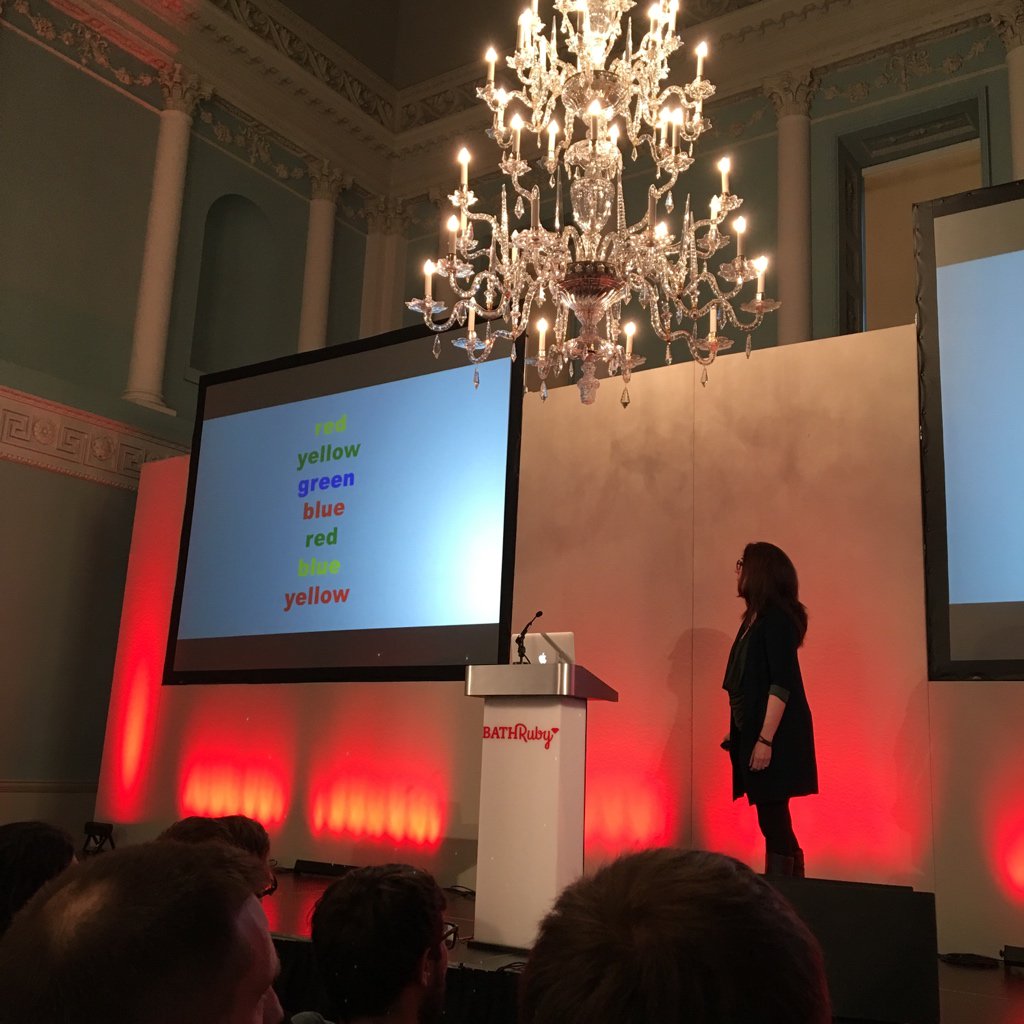- Not a coder, but a scientist
- Will try to explain why the gender inequality in our industry exists
- Messages growing up:
- on the one hand message from rocket scientist father that being a scientist was a good goal for a woman
- On the other hand, birthday gifts between her (clothing, crafting) and her brother (tinkering, electrical engineering) were very gendered
- why does this happen? Why do parents make these choices (despite their actual values)
- At university, message was: ‘because you don’t know soldering, you don’t belong on a physics degree
- unconscious bias

- Women in CS peaked in around 1970 (30-ish%) and has been declining ever since
- Similar stories in politics, film etc.
- “for a lot of people this doesn’t seem to be a problem”
- Rationale: we have parity of education and opportunity, so it must just be because women aren’t interested in these roles
- Research: companies with more women, particularly on boards, massively outperform other companies “on every metric that business cares about”
- There are undeniable good reasons, so why is there still such inequality
- All of us, male and female are unconsciously gender-biased.
- Until we learn how to bring these to the conscious level it’s going to continue to be a problem
- Brains encode associations based on what they perceive - irrespective of
accuracy etc.
- We make decisions about people immediately based on appearance
- Most of the time this is OK: these biases are shortcuts.
- Things go wrong when these biases stop working (stop being accurate)
- Brain will always prefer to take the shortcut to free up brainpower for other tasks
- Unconscious associations can be tested by matching up traditionally gendered qualities with images of the opposite gender and measuring the difficulty of each pairing
- Mothers overestimate the crawling ability of boys and underestimate that of girls
- Women’s code on github PRs was accepted about 4% more than men’s (unless the gender could be inferred from their profile, which reversed the trend)
- Women are more likely to attribute their success to luck, men to hard work
- Confidence and likeability are positively correlated for men, and negatively correlated for women
- 2 environments for a Computer Science classroom: one neutrally decorated, one geekily decorated. No difference in impact on Men’s interest in the subject, but the latter significantly reduced the interest in the course of the female participants
- How to fix it? Focus on creating a neutral environment - consider all aspects: decor, imagery etc.
“Legislation doesn’t change culture: people do”
“It’s hard work and it’s messy, but it’s a mess worth wading into